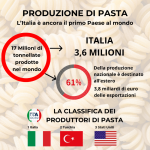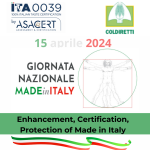On March 15, 1962, before the U.S. Congress, President John F. Kennedy delivered a landmark speech concerning the defense of consumer interests. There, Kennedy outlined four basic principles that should be guaranteed to consumers: the right to safety, the right to information, the right to choose, and the right to be heard. This event marked a watershed moment, as it was understood that the health of the economy is closely linked to consumer protection. To coincide with the anniversary of this important date, in 1983, the United Nations decided to establish World Consumer Rights Day, further highlighting the importance of this issue globally.
Consumer protection is not only about product safety and quality, but also about promoting a sustainable lifestyle and supporting the local economy. Actively involving consumers in the process of production and distribution of goods is key to ensuring greater accountability and transparency on the part of producers.
With this in mind, World Consumer Rights Day should remind us of the priority importance of education for conscious consumption, that is, having an awareness of one’s rights and duties, knowing how to critically navigate the market, and making responsible choices are the winning weapons for protecting oneself and building a more sustainable future.
Hence, ITA0039’s contribution of transparency given by the app that allows consumers to know what they are buying. The ITA0039 app is a tool provided by Asacert for consumers to access a vast database of Italian and certified restaurants abroad. It is available for free for iOS and Android devices and allows users to browse menus, locate restaurants on a map, and book tables.
In addition to providing these features, the app enables consumers to become guardians of real Made in Italy products abroad. By scanning the barcode, users can identify potentially fake products and report them through an active reporting system, gaining direct benefits for each report made. They can also send photographs of the reported products, which are automatically recorded in the app. The information is then screened by a Technical Committee, which makes the appropriate verifications. Products confirmed as non-authentic are included in a database, which will be used to create an Observatory on Italian Sounding.
In sintesi, l’applicazione svolge quattro principali compiti: fornisce servizi ai ristoranti (menù, mappa, prenotazioni), offre un punto di osservazione globale sui prodotti in commercio, educa i consumatori del mondo sugli alimenti italiani e protegge i produttori italiani, indirizzando i consumatori verso prodotti autenticamente Made in Italy.






